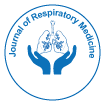Notre groupe organise plus de 3 000 séries de conférences Événements chaque année aux États-Unis, en Europe et en Europe. Asie avec le soutien de 1 000 autres Sociétés scientifiques et publie plus de 700 Open Access Revues qui contiennent plus de 50 000 personnalités éminentes, des scientifiques réputés en tant que membres du comité de rédaction.
Les revues en libre accès gagnent plus de lecteurs et de citations
700 revues et 15 000 000 de lecteurs Chaque revue attire plus de 25 000 lecteurs
Indexé dans
- Google Scholar
Liens utiles
Revues en libre accès
Partager cette page
Abstrait
The Role of Caffeine and Doxapram for Respiratory Care in Preterm Infants: A Clinical Review
Friedrich Reiterer
This review describes the clinical role of caffeine and doxapram as respiratory stimulants for preterm infants. Based on the current evidence caffeine citrate is the preferred drug for treatment of apnea of prematurity (AOP) and for the prevention of post-extubation respiratory failure in preterm infants. It has favorable short-and long-term effects including a reduced incidence of patient ductus arteriosus, bronchopulmonary dysplasia and improvements in neurodevelopmental outcome. Caffeine citrate is safe with currently recommended dosing, but further studies are warranted regarding the safety of caffeine when used immediately after birth and with high-dosing regimens. Doxapram has also been shown to be effective in the treatment of AOP and to reduce the need for intubation. Because of concerns about serious side effects it was less frequently used in the past. Despite encouraging results from recent studies, based on the limited number of large, randomized, controlled studies, doxapram is still not recommended for routine respiratory support in the NICU. It is a third-line or rescue therapy for preterm infants with severe AOP unresponsive to caffeine and NIV.
Revues par sujet
- Agriculture et Aquaculture
- Biochimie
- Chimie
- Food & Nutrition
- Génétique et biologie moléculaire
- Géologie et sciences de la Terre
- Immunologie et microbiologie
- Ingénierie
- La science des matériaux
- Le physique
- Science générale
- Sciences cliniques
- Sciences environnementales
- Sciences médicales
- Sciences pharmaceutiques
- Sciences sociales et politiques
- Sciences vétérinaires
- Soins infirmiers et soins de santé
Revues cliniques et médicales
- Allaitement
- Anesthésiologie
- Biologie moléculaire
- Cardiologie
- Chirurgie
- Dentisterie
- Dermatologie
- Diabète et endocrinologie
- Gastro-entérologie
- Immunologie
- La génétique
- Maladies infectieuses
- Médecine
- Microbiologie
- Neurologie
- Oncologie
- Ophtalmologie
- Pédiatrie
- Recherche clinique
- Soins de santé
- Toxicologie

 English
English  Spanish
Spanish  Chinese
Chinese  Russian
Russian  German
German  Japanese
Japanese  Portuguese
Portuguese  Hindi
Hindi